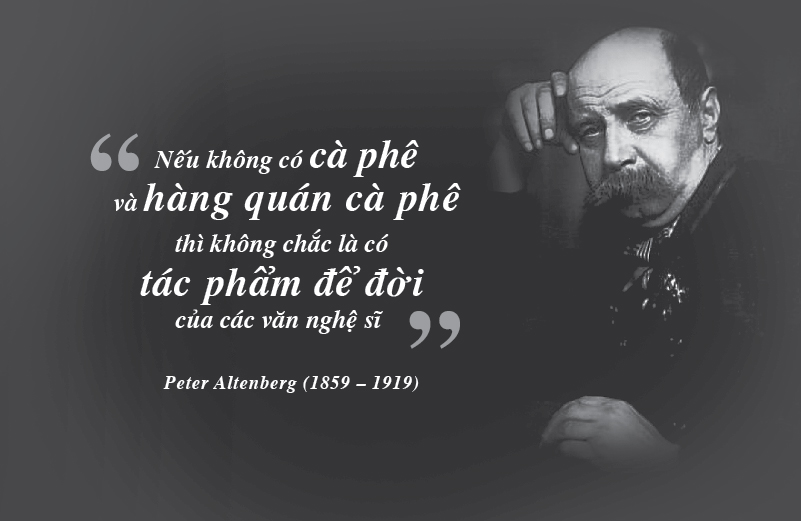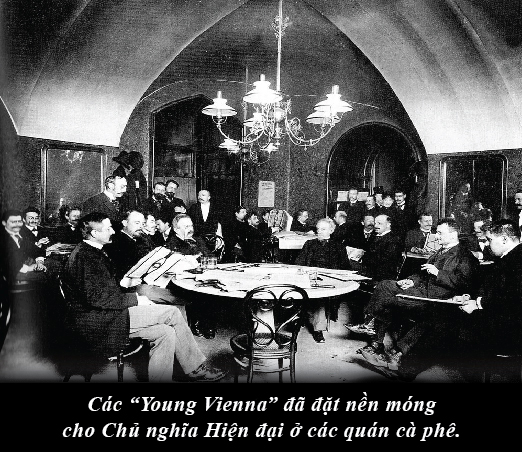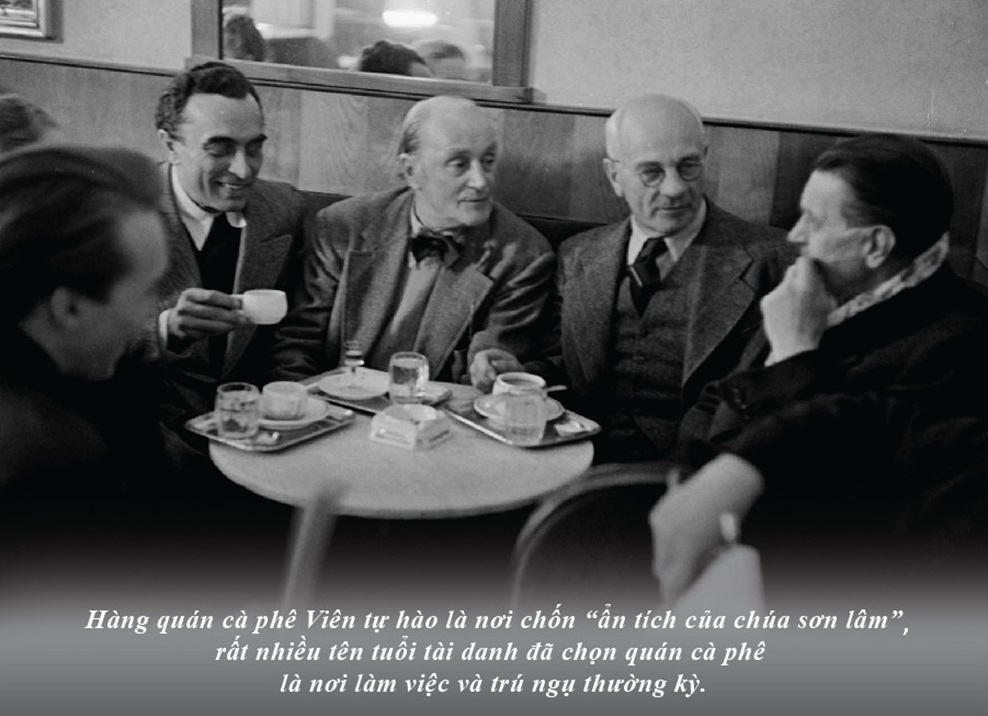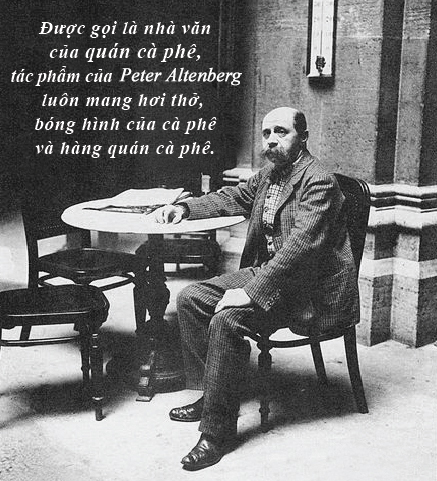Article 37: The great writer Peter Altenberg – a cafe that sublimated the fate of people
Located at the interface between Western and Eastern Europe, the cafes in Vienna have become a place of affirmation: the true nobility of oneself lies in the human thinking.

“If there were no coffee shops and cafes, it would not be possible to have the work of a lifetime of writers and artists.” – Peter Altenberg (1859-1919)
The avant-garde art movement of the 20th century
Modernism began to appear in Europe in the late 19th and early 20th centuries, forming a philosophical-aesthetic movement that reflected the crisis of the capitalist world and the ideology it had created. In terms of aesthetic principles, Modernism brought about the concept of “artistic revolution”, bringing a strong spirit of innovation, aiming to explore the spiritual, mysterious unconscious regions, hidden streams of consciousness, irrational expressions of life, manifesting in many different ways such as: inner monologue, assembly of associations, interaction of memories, etc. At the same time, Modernism holds that Realism has been surpassed and no longer fits the modern view of the world.

The “Young Vienna” laid the foundation for Modernism in the coffee shops.
During this period, the cafes in Vienna emerged from the characteristic interface between Western and Eastern Europe, becoming the ideal ground to promote the new movements of Modernism, called “avant-garde art movement of the 20th century”. That movement included the almost simultaneous movements: Fauvism, Expressionism, Futurism, Dadaism, Surrealism, Cubism, Abstractism, “international style” in architecture… Famous architects and painters such as Gustav Klimt, Egon Schiele, Oskar Kokoschka and Adolf Loos… would often meet for coffee to discuss, or play chess at Café Museum. Adolf Loos himself designed in a modern, minimalist style. And Café Central was considered the convergence of all life-changing aspirations of the last decades of the 19th century, from the cultural to the political, where Sigmund Freud, Stefan Zweig, Peter Altenberg… would sit to reflect on cherished thoughts of their own.
A cafe that sublimated the fate of people
Café Central’s special space was not only a meeting place for the intellectual elite in Vienna, but also a place where many talents were discovered, including the literary talent of Peter Altenberg – who laid the foundation for the formation of modernist literature, an influential figure in the “Young Vienna” literary and artistic movement.
Peter Altenberg was born into a middle-class family and was expected to become a doctor, an engineer, or at least follow the law….However, he did not find interest and failed to demonstrate competence in all the professions the family had chosen. Peter Altenberg left his family, wandering aimlessly in the cafes of Vienna. Peter Altenberg’s literary talent was discovered by Arthur Schnitzler – Austrian author, playwright when reading the first manuscripts of Peter Altenberg written at Café Central.

Vien coffee shops were proud to be the “hidden place of the king of the jungle”, many famous names chose the cafe as a place to work and live regularly.
Most of the time, Peter Altenberg would sit at Café Central composing. His works did not follow the classical pattern but were improvised, short, concise, but also full of poetry. This is considered a characteristic feature of Modernism in literary and artistic creation in the early 20th century. The coffee shop was the workplace, so the content of Peter Altenberg’s works contained profound observations, proportions and insights, elaborating on the daily life and activities of people, especially children, women, and disadvantaged members of society.
Creativity and innovation in literary and artistic creation helped Peter Altenberg be known as a typical “Young Vienna”, and he was nominated for the Nobel Prize in Literature. Evocations of Love, Telegrams of the Soul were typical messages about love of life, love of people. Peter Altenberg’s outlook on life did not distinguish between classes, hierarchies, even somewhat idyllic, but always makes readers sink into his feelings and thoughts. Many of Peter Altenberg’s excerpts, aphorisms, and prose verses were printed on postcards, letterheads, and convoys throughout Europe.
In particular, known as the writer of the cafe, Peter Altenberg’s literature carried the breath, the shadow of coffee so much that his readers can find it in any of his works. At Café Central to this day, there are still immortal lines of the poem “To The Coffee House”:
“When you are worried, have trouble of one sort or another -to the coffee house!
You could not not find a mate to suit you- coffee house!
You feel like committing suicide – coffee house!
You compose a poem which you can not inflict upon friends that you meet in the street – coffee house!
When you acquire a new flame, and intend provoking the old one, you take the new one to the old one’s – coffee house!”

Called the writer of the cafe, Peter Altenberg’s work always carries the breath, the image of coffee and the coffee house.
For Peter Altenberg, Café Central was not only a place where he built his famous career, but also a real home. He used this as the address in this place as a delivery and consignment place for letters and personal items. The coffee shop was not only a place to enjoy coffee, but also a place to evoke and reveal the feelings of reality, look forward to the future, thereby becoming a dynamic sublimation of one’s own destiny.
THE REAL COFFEE
ROASTED ONLY FOR PEOPLE OF WISDOM!
Source: “The Philosophical Way of Coffee” – copyright by Trung Nguyen Legend


